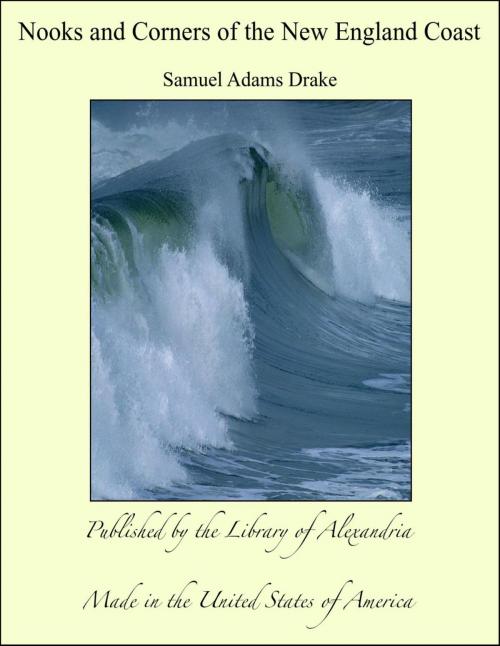Nooks and Corners of the New England Coast
Nonfiction, Religion & Spirituality, New Age, History, Fiction & Literature| Author: | Samuel Adams Drake | ISBN: | 9781465574275 |
| Publisher: | Library of Alexandria | Publication: | March 8, 2015 |
| Imprint: | Language: | English |
| Author: | Samuel Adams Drake |
| ISBN: | 9781465574275 |
| Publisher: | Library of Alexandria |
| Publication: | March 8, 2015 |
| Imprint: | |
| Language: | English |
In many respects the sea-coast of Maine is the most remarkable of New England. It is serrated with craggy projections, studded with harbors, seamed with inlets. Broad bays conduct to rivers of great volume that annually bear her forests down to the sea. Her shores are barricaded with islands, and her waters teem with the abundance of the seas. Seen on the map, it is a splintered, jagged, forbidding sea-board; beheld with the eye in a kindly season, its tawny headlands, green archipelagos, and inviting harbors, infolding sites recalling the earlier efforts at European colonization, combine in a wondrous degree to win the admiration of the man of science, of letters, or of leisure. Maine embraces within her limits the semi-fabulous Norumbega and Mavoshen of ancient writers. Some portion of her territory has been known at various times by the names of Acadia, New France, and New England. The arms of France and of England have alternately been erected on her soil, and the flags of at least four powerful states have claimed her subjection. The most numerous and warlike of the primitive New England nations were seated here. Traces of French occupation are remaining in the names of St. Croix, Mount Desert, Isle au Haut, and Castine, names which neither treaties nor national prejudice have been quite able to eradicate.
In many respects the sea-coast of Maine is the most remarkable of New England. It is serrated with craggy projections, studded with harbors, seamed with inlets. Broad bays conduct to rivers of great volume that annually bear her forests down to the sea. Her shores are barricaded with islands, and her waters teem with the abundance of the seas. Seen on the map, it is a splintered, jagged, forbidding sea-board; beheld with the eye in a kindly season, its tawny headlands, green archipelagos, and inviting harbors, infolding sites recalling the earlier efforts at European colonization, combine in a wondrous degree to win the admiration of the man of science, of letters, or of leisure. Maine embraces within her limits the semi-fabulous Norumbega and Mavoshen of ancient writers. Some portion of her territory has been known at various times by the names of Acadia, New France, and New England. The arms of France and of England have alternately been erected on her soil, and the flags of at least four powerful states have claimed her subjection. The most numerous and warlike of the primitive New England nations were seated here. Traces of French occupation are remaining in the names of St. Croix, Mount Desert, Isle au Haut, and Castine, names which neither treaties nor national prejudice have been quite able to eradicate.















